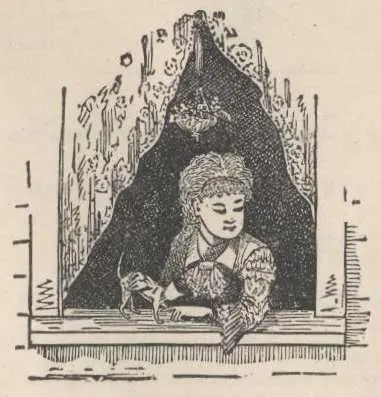Mark Twain - A Tramp Abroad
Здесь есть возможность читать онлайн «Mark Twain - A Tramp Abroad» весь текст электронной книги совершенно бесплатно (целиком полную версию без сокращений). В некоторых случаях можно слушать аудио, скачать через торрент в формате fb2 и присутствует краткое содержание. Жанр: Классическая проза, Юмористическая проза, на английском языке. Описание произведения, (предисловие) а так же отзывы посетителей доступны на портале библиотеки ЛибКат.
- Название:A Tramp Abroad
- Автор:
- Жанр:
- Год:неизвестен
- ISBN:нет данных
- Рейтинг книги:5 / 5. Голосов: 1
-
Избранное:Добавить в избранное
- Отзывы:
-
Ваша оценка:
- 100
- 1
- 2
- 3
- 4
- 5
A Tramp Abroad: краткое содержание, описание и аннотация
Предлагаем к чтению аннотацию, описание, краткое содержание или предисловие (зависит от того, что написал сам автор книги «A Tramp Abroad»). Если вы не нашли необходимую информацию о книге — напишите в комментариях, мы постараемся отыскать её.
A Tramp Abroad — читать онлайн бесплатно полную книгу (весь текст) целиком
Ниже представлен текст книги, разбитый по страницам. Система сохранения места последней прочитанной страницы, позволяет с удобством читать онлайн бесплатно книгу «A Tramp Abroad», без необходимости каждый раз заново искать на чём Вы остановились. Поставьте закладку, и сможете в любой момент перейти на страницу, на которой закончили чтение.
Интервал:
Закладка:

He could have gone home much the richest citizen of his country, and it might have been years before the plunder was missed; but he was human—he could not enjoy his delight alone, he must have somebody to talk about it with. So he exacted a solemn oath from a Candian noble named Crioni, then led him to his lodgings and nearly took his breath away with a sight of his glittering hoard. He detected a look in his friend's face which excited his suspicion, and was about to slip a stiletto into him when Crioni saved himself by explaining that that look was only an expression of supreme and happy astonishment. Stammato made Crioni a present of one of the state's principal jewels—a huge carbuncle, which afterward figured in the Ducal cap of state—and the pair parted. Crioni went at once to the palace, denounced the criminal, and handed over the carbuncle as evidence. Stammato was arrested, tried, and condemned, with the old-time Venetian promptness. He was hanged between the two great columns in the Piazza—with a gilded rope, out of compliment to his love of gold, perhaps. He got no good of his booty at all—it was ALL recovered.
In Venice we had a luxury which very seldom fell to our lot on the continent—a home dinner with a private family. If one could always stop with private families, when traveling, Europe would have a charm which it now lacks. As it is, one must live in the hotels, of course, and that is a sorrowful business. A man accustomed to American food and American domestic cookery would not starve to death suddenly in Europe; but I think he would gradually waste away, and eventually die.
He would have to do without his accustomed morning meal. That is too formidable a change altogether; he would necessarily suffer from it. He could get the shadow, the sham, the base counterfeit of that meal; but it would do him no good, and money could not buy the reality.
To particularize: the average American's simplest and commonest form of breakfast consists of coffee and beefsteak; well, in Europe, coffee is an unknown beverage. You can get what the European hotel-keeper thinks is coffee, but it resembles the real thing as hypocrisy resembles holiness. It is a feeble, characterless, uninspiring sort of stuff, and almost as undrinkable as if it had been made in an American hotel. The milk used for it is what the French call "Christian" milk—milk which has been baptized.

After a few months' acquaintance with European "coffee," one's mind weakens, and his faith with it, and he begins to wonder if the rich beverage of home, with its clotted layer of yellow cream on top of it, is not a mere dream, after all, and a thing which never existed.
Next comes the European bread—fair enough, good enough, after a fashion, but cold; cold and tough, and unsympathetic; and never any change, never any variety—always the same tiresome thing.
Next, the butter—the sham and tasteless butter; no salt in it, and made of goodness knows what.
Then there is the beefsteak. They have it in Europe, but they don't know how to cook it. Neither will they cut it right. It comes on the table in a small, round pewter platter. It lies in the center of this platter, in a bordering bed of grease-soaked potatoes; it is the size, shape, and thickness of a man's hand with the thumb and fingers cut off. It is a little overdone, is rather dry, it tastes pretty insipidly, it rouses no enthusiasm.
Imagine a poor exile contemplating that inert thing; and imagine an angel suddenly sweeping down out of a better land and setting before him a mighty porterhouse steak an inch and a half thick, hot and sputtering from the griddle; dusted with a fragrant pepper; enriched with little melting bits of butter of the most unimpeachable freshness and genuineness; the precious juices of the meat trickling out and joining the gravy, archipelagoed with mushrooms; a township or two of tender, yellowish fat gracing an outlying district of this ample county of beefsteak; the long white bone which divides the sirloin from the tenderloin still in its place; and imagine that the angel also adds a great cup of American home-made coffee, with a cream a-froth on top, some real butter, firm and yellow and fresh, some smoking hot-biscuits, a plate of hot buckwheat cakes, with transparent syrup—could words describe the gratitude of this exile?
The European dinner is better than the European breakfast, but it has its faults and inferiorities; it does not satisfy. He comes to the table eager and hungry; he swallows his soup—there is an undefinable lack about it somewhere; thinks the fish is going to be the thing he wants—eats it and isn't sure; thinks the next dish is perhaps the one that will hit the hungry place—tries it, and is conscious that there was a something wanting about it, also. And thus he goes on, from dish to dish, like a boy after a butterfly which just misses getting caught every time it alights, but somehow doesn't get caught after all; and at the end the exile and the boy have fared about alike; the one is full, but grievously unsatisfied, the other has had plenty of exercise, plenty of interest, and a fine lot of hopes, but he hasn't got any butterfly. There is here and there an American who will say he can remember rising from a European table d'hôte perfectly satisfied; but we must not overlook the fact that there is also here and there an American who will lie.
The number of dishes is sufficient; but then it is such a monotonous variety of UNSTRIKING dishes. It is an inane dead-level of "fair-to-middling." There is nothing to ACCENT it. Perhaps if the roast of mutton or of beef—a big, generous one—were brought on the table and carved in full view of the client, that might give the right sense of earnestness and reality to the thing; but they don't do that, they pass the sliced meat around on a dish, and so you are perfectly calm, it does not stir you in the least. Now a vast roast turkey, stretched on the broad of his back, with his heels in the air and the rich juices oozing from his fat sides ... but I may as well stop there, for they would not know how to cook him. They can't even cook a chicken respectably; and as for carving it, they do that with a hatchet.

This is about the customary table d'hôte bill in summer:
Soup (characterless).
Fish—sole, salmon, or whiting—usually tolerably good.
Roast—mutton or beef—tasteless—and some last year's potatoes.
A pate, or some other made dish—usually good—"considering."
One vegetable—brought on in state, and all alone—usually insipid lentils, or string-beans, or indifferent asparagus.
Roast chicken, as tasteless as paper.
Lettuce-salad—tolerably good.
Decayed strawberries or cherries.
Sometimes the apricots and figs are fresh, but this is no advantage, as these fruits are of no account anyway.
The grapes are generally good, and sometimes there is a tolerably good peach, by mistake.
The variations of the above bill are trifling. After a fortnight one discovers that the variations are only apparent, not real; in the third week you get what you had the first, and in the fourth the week you get what you had the second. Three or four months of this weary sameness will kill the robustest appetite.
Читать дальшеИнтервал:
Закладка:
Похожие книги на «A Tramp Abroad»
Представляем Вашему вниманию похожие книги на «A Tramp Abroad» списком для выбора. Мы отобрали схожую по названию и смыслу литературу в надежде предоставить читателям больше вариантов отыскать новые, интересные, ещё непрочитанные произведения.
Обсуждение, отзывы о книге «A Tramp Abroad» и просто собственные мнения читателей. Оставьте ваши комментарии, напишите, что Вы думаете о произведении, его смысле или главных героях. Укажите что конкретно понравилось, а что нет, и почему Вы так считаете.












